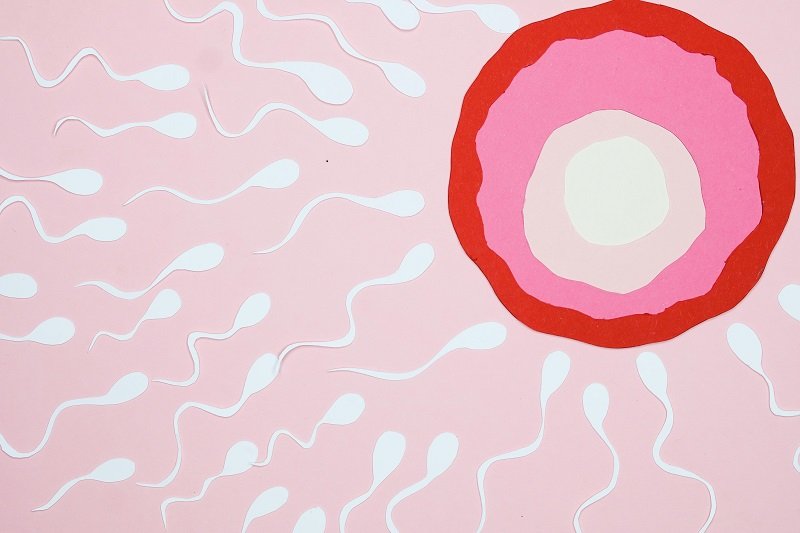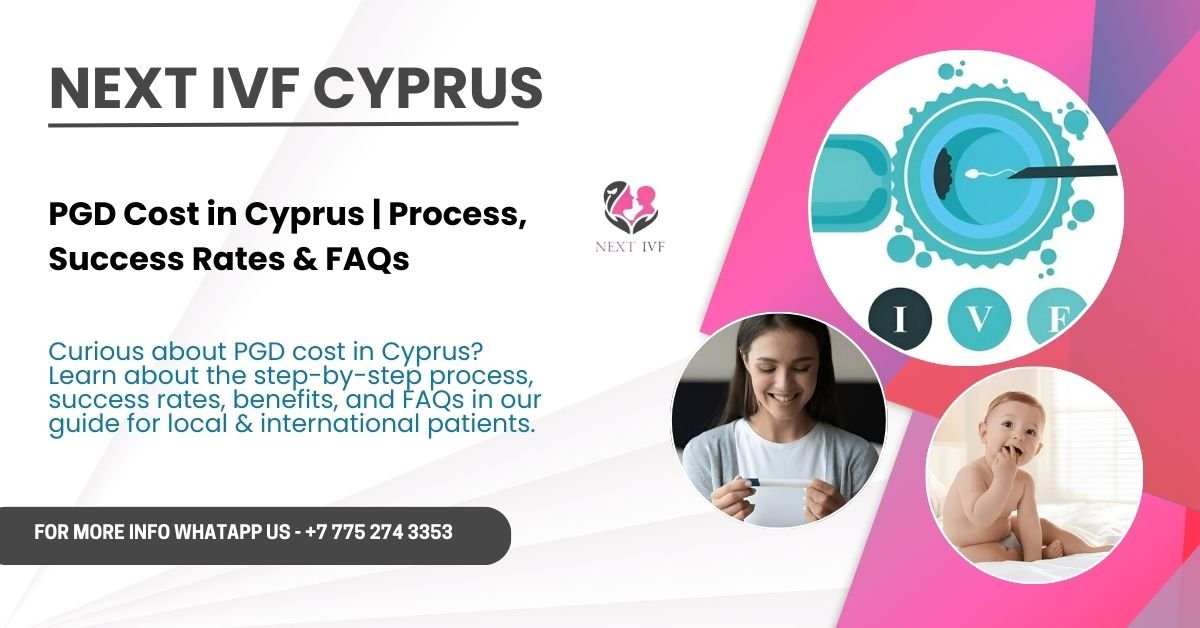PGD Cost in Cyprus
Preimplantation Genetic Diagnosis (PGD) is a highly advanced technique used during IVF to screen embryos for genetic diseases before implantation. For couples who carry inherited conditions or have experienced repeated miscarriages, PGD offers a powerful solution, it helps ensure that only genetically healthy embryos are transferred into the uterus, increasing the chances of a healthy pregnancy. Cyprus has emerged as a popular destination for PGD and IVF, thanks to its excellent medical facilities, highly skilled doctors, and competitive pricing.
When it comes to affordability and quality care, PGD cost in Cyprus strikes a perfect balance. Many couples from the UK, Europe, the Middle East, and even Asia travel to Cyprus to receive fertility treatments like IVF with PGD. Not only do clinics here offer high standards of care, but they also provide personalized treatment plans tailored to each patient’s unique needs.
Cyprus is known for its relaxed legal framework surrounding reproductive treatments, especially donor egg IVF and genetic screening, which are limited in some other countries. With short waiting times, high success rates, and comfortable, English-speaking support teams, Cyprus has become a trusted name in reproductive medicine.
In this article, we will walk you through everything you need to know about the PGD cost in Cyprus, what influences the price, what’s included, and why many couples are choosing this beautiful Mediterranean country for their fertility journey. Whether you’re just starting to explore your options or ready to travel, this guide is designed to help you make informed decisions with confidence.
What is PGD?

Preimplantation Genetic Diagnosis (PGD) is a laboratory technique used during the IVF (In Vitro Fertilization) process to test embryos for genetic disorders before they are transferred to the uterus. It’s a helpful tool for couples who have a family history of genetic diseases or have experienced recurrent miscarriages, failed IVF attempts, or are at advanced maternal age.
Here’s how it works: After the eggs are fertilized in the lab and form embryos, a few cells are carefully removed from each embryo, usually on day 3 or 5 of development. These cells are then tested for specific genetic or chromosomal abnormalities, such as cystic fibrosis, Down syndrome, or thalassemia. Only the embryos found to be genetically healthy are selected for transfer into the uterus.
PGD doesn’t harm the embryo when performed by experienced professionals and can greatly increase the chances of a healthy pregnancy. It also helps reduce the risk of passing on inherited diseases to the baby.
PGD is often used together with PGS (Preimplantation Genetic Screening), which checks for general chromosomal health. Together, these tools give couples a better chance of having a successful pregnancy and a healthy baby.
How PGD works? – Step-by-Step process in Cyprus
1. IVF Process Begins (Ovarian Stimulation & Egg Collection)
To start PGD, the woman undergoes the IVF process. She is given hormone injections for 10–12 days to stimulate her ovaries to produce multiple eggs instead of just one. Once the eggs are mature, they are collected from her ovaries through a simple procedure called egg retrieval, which is done under light sedation.
2. Fertilization of the Eggs
The collected eggs are combined with sperm from the male partner (or donor) in the lab. This creates fertilized embryos. This step is just like regular IVF, and sometimes a technique called ICSI (Intracytoplasmic Sperm Injection) is used to increase the chances of successful fertilization.
3. Embryo Development in the Lab
The fertilized embryos are monitored carefully as they grow for about 3 to 5 days. During this time, the embryologist watches to see which embryos are developing normally and are suitable for testing.
4. Embryo Biopsy (Cell Removal)
When the embryos reach the right stage (usually day 3 or day 5), a few cells are gently removed from each embryo. This is done very carefully using advanced technology to ensure the embryo stays unharmed and healthy for transfer later.
5. Genetic Testing of the Embryo Cells
The removed cells are sent to a specialized genetic lab for testing. The lab looks for specific genetic conditions (like thalassemia, cystic fibrosis, etc.) or chromosomal issues (like Down syndrome). This step helps doctors identify which embryos are genetically normal.
6. Selection and Transfer of Healthy Embryos
Only embryos that are found to be genetically healthy are selected for transfer. One or two of these embryos are carefully placed into the woman’s uterus. This is a quick and painless procedure, similar to a pap smear.
PGD Cost in Cyprus

The cost of PGD in Cyprus typically ranges between USD 6,000 to USD 9,000. This includes the full IVF cycle and genetic testing for selected embryos. Prices may vary depending on the clinic, the number of embryos tested, and whether donor eggs or sperm are used. Cyprus is known for offering high-quality fertility care at relatively affordable rates, making it a popular destination for couples seeking PGD abroad.
The following table helps you to understand the cost of PGD in Cyprus:
| PGD Cost Service in Cyprus | PGD Cost in Cyprus (USD) |
| Initial Consultation | $100 – $200 |
| IVF Cycle (with medications) | $3,500 – $5,000 |
| PGD Genetic Testing (per cycle) | $2,000 – $3,500 |
| Embryo Biopsy | $500 – $800 |
| Embryo Transfer | $500 – $800 |
| Total Estimated Cost | $6,000 – $9,000 |
The following table helps you to understand the cost of PGD in different countries:
| Country | Average PGD Cost (USD) |
| PGD Cost in USA | $4,000 – $7,500 (in addition to IVF) |
| PGD Cost in UK | $3,500 – $6,000 |
| PGD Cost in India | $1,500 – $3,000 |
| PGD Cost in Thailand | $2,500 – $4,500 |
| PGD Cost in Ukraine | $2,000 – $4,000 |
| PGD Cost in Georgia | $2,500 – $4,500 |
| PGD Cost in Cyprus | $3,000 – $5,000 |
| PGD Cost in Kenya | $2,000 – $3,500 |
| PGD Cost in Mexico | $2,500 – $4,000 |
| PGD Cost in Nepal | $1,800 – $3,200 |
| PGD Cost in Cyprus | $1,500 – $2,800 |
| PGD Cost in Turkey | $2,500 – $4,000 |
Success rate of PGD in Cyprus

The success rate of PGD in Cyprus is considered high due to the country’s advanced medical technology, skilled fertility specialists, and well-regulated clinics. Here’s a detailed overview:
- With Own Eggs (Under 35 Years): The success rate of achieving pregnancy with PGD and IVF ranges between 65% to 75%.
- With Donor Eggs: Success rates can go up to 75% to 85%, as donor eggs are usually from younger, healthy women with proven fertility.
- Implantation Rate: The embryo implantation rate with PGD is approximately 40% to 50% per embryo transferred.
- Reduced Miscarriage Risk: PGD helps select chromosomally normal embryos, reducing the chance of miscarriage significantly.
Why is PGD successful in Cyprus?
- Highly trained embryologists and IVF specialists with international experience.
- State-of-the-art laboratories equipped with time-lapse imaging and laser-assisted hatching.
- Strict quality control and laboratory standards.
- Cyprus clinics often treat international patients, so they are experienced in handling complex genetic cases and maintaining high success outcomes.
Why trust Next IVF Cyprus?

Struggling with infertility can be emotionally and physically challenging, but you don’t have to face it alone. At Next IVF Cyprus, we combine advanced science with genuine care and compassion to help you realize your dream of becoming a mom and dad.
Our centre is dedicated to supporting every couple with personalized fertility solutions tailored to your unique needs. We understand how deeply you desire to start or expand your family, and that’s why our expert team, including IVF specialists, gynecologists, embryologists, and supportive staff, stands by your side every step of the way.
Why choose Next IVF Cyprus as your trusted fertility partner?
- Comprehensive treatments: From IVF, IUI, and frozen embryo transfer to ovum and semen donation, laparoscopy, ICSI, PGD, and male infertility care, we offer the full spectrum of cutting-edge fertility services.
- High success rates: Our proven protocols and experienced specialists maximise your chances of success.
- Affordable care: Quality fertility treatment should be accessible to all. We provide world-class solutions at pocket-friendly prices without compromising on care or outcomes.
Don’t wait any longer to begin your journey toward parenthood. Contact Next IVF Cyprus today at +91 7827636596 or email us at info@nextivf.com. Together, we’ll make your dream of having a family a beautiful reality.
Conclusion
Choosing PGD Cost in Cyprus offers hopeful parents a combination of advanced reproductive care, high success rates, and affordable pricing compared to countries like the USA or UK. Cyprus has gained global recognition for its experienced IVF doctors, modern clinics, and patient-focused approach. Whether you’re dealing with a genetic condition, recurrent miscarriages, or failed IVF cycles, PGD gives you the chance to select healthy embryos and improve your chances of a successful pregnancy.
Couples from around the world choose Cyprus for its reliable fertility services and transparent care system. With excellent facilities and personalized treatment plans, the journey becomes less stressful and more result-oriented. If you’re considering PGD, Cyprus provides the expertise and care to make your dreams of a healthy baby a reality.
Frequently Asked Questions (FAQs)
1. What is the difference between PGD and PGT-A?
PGD is used to screen for specific genetic diseases, while PGT-A (Preimplantation Genetic Testing for Aneuploidy) checks for abnormal numbers of chromosomes in embryos.
2. How long does the PGD process take in Cyprus?
Typically, one PGD cycle takes about 3–5 weeks, depending on your treatment plan and the clinic’s schedule.
3. Is PGD painful for the female partner?
No, the PGD process involves IVF, which includes egg retrieval under mild sedation. The biopsy and testing are done on the embryos in the lab.
4. Can international patients do PGD in Cyprus?
Yes, Cyprus welcomes patients from all over the world and offers travel support, accommodation guidance, and English-speaking coordinators.
5. Is PGD always successful?
PGD helps select healthy embryos, which increases the chances of pregnancy, but success also depends on age, egg quality, and overall health.
6. Can PGD detect gender?
Yes, PGD can detect the sex of the embryo, and gender selection is allowed in Cyprus for medical or family balancing reasons.
Read Also:
- Discover the Best Surrogacy Centre in Cyprus: A Complete Guide to Surrogacy & IVF
- Top 10 Best IVF Centres in Cyprus for 2025: Trusted Clinics with High Success Rates
- Surrogacy Cost in Cyprus: Everything You Need to Know Before You Start Your Journey
- IVF Cost in Cyprus: Everything You Need to Know Before Starting Your Journey

